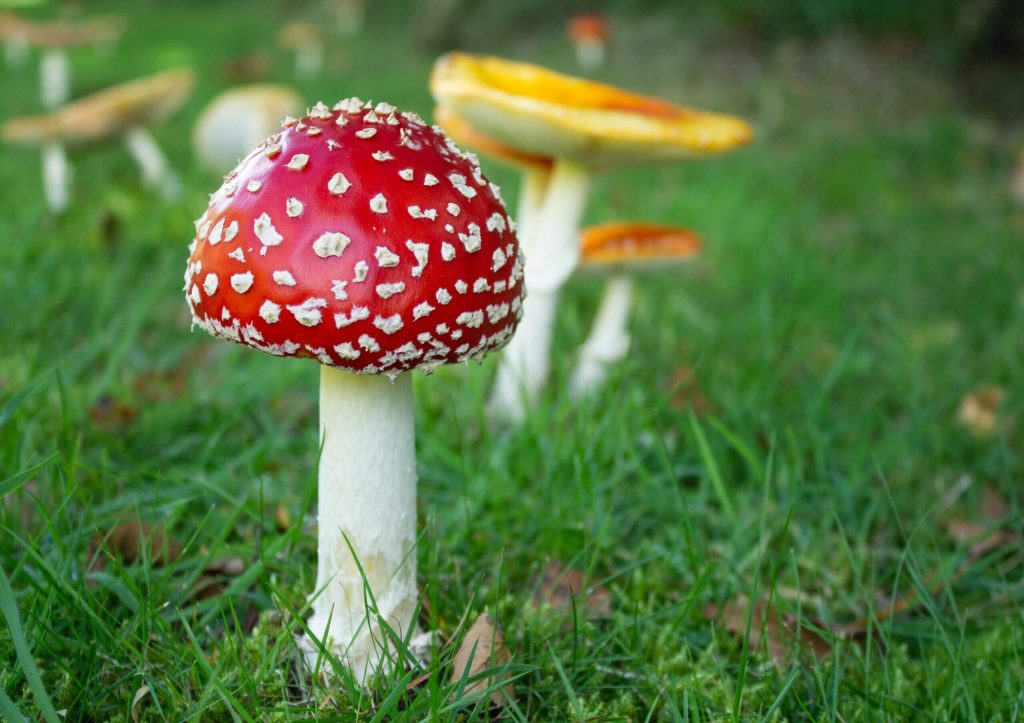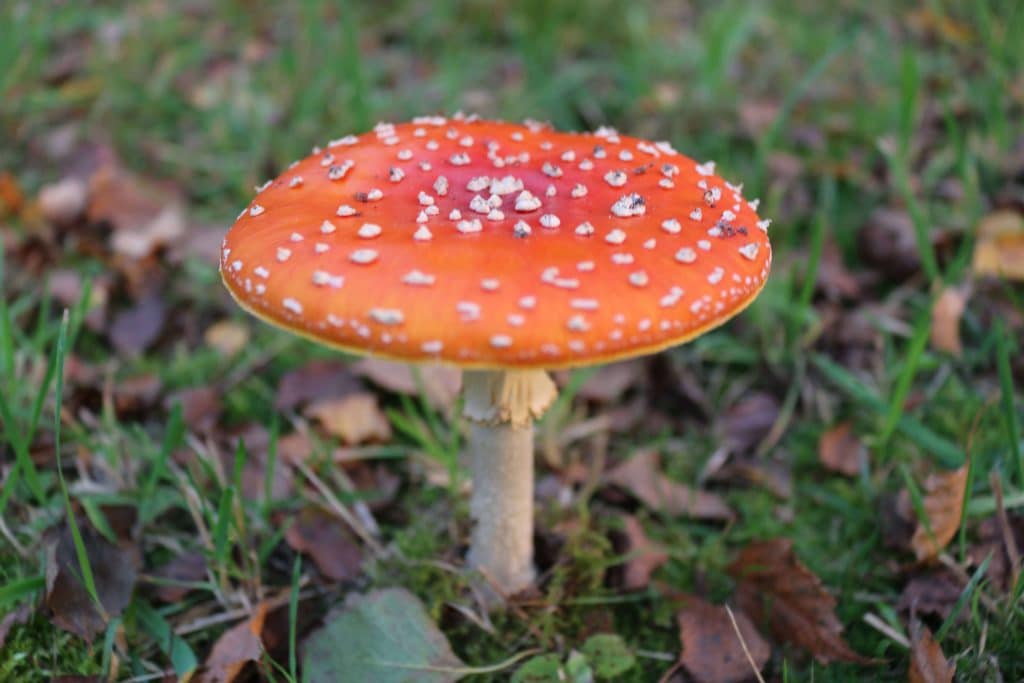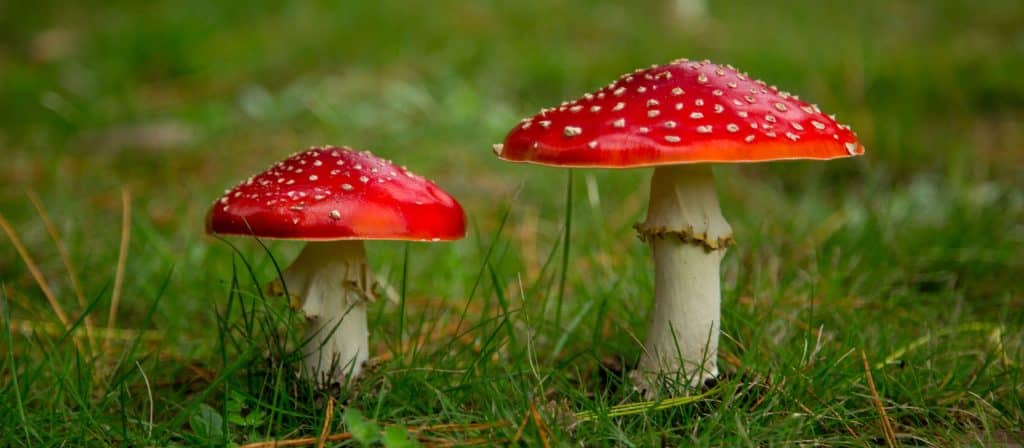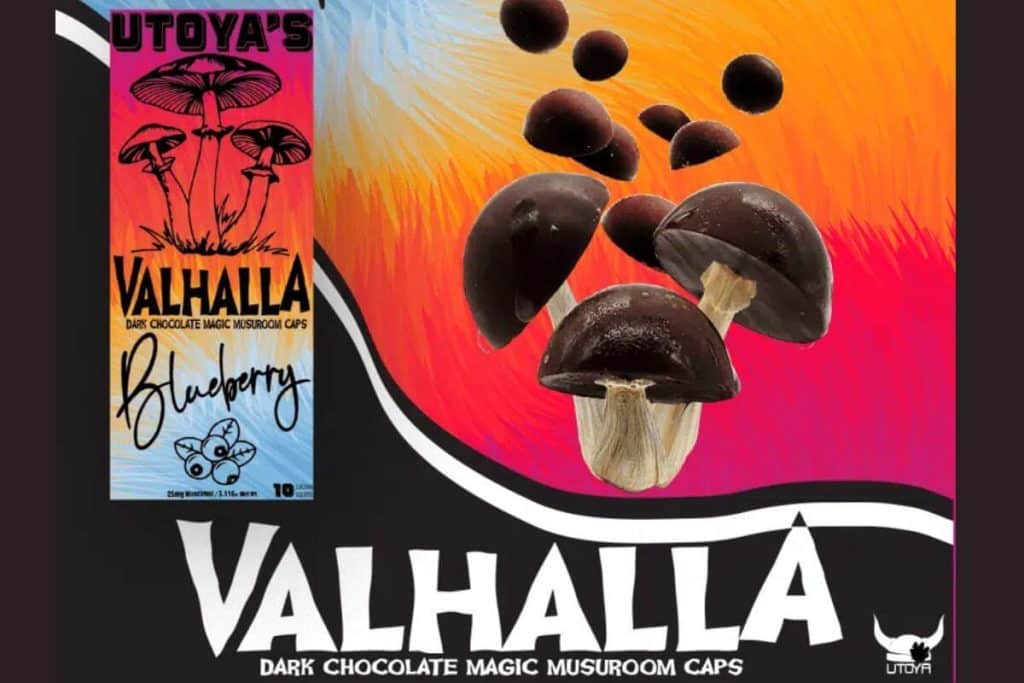What Is Muscimol? Guide to Benefits, Risks, and Legality
Amanita Muscaria, the iconic red-capped mushroom, holds a charm that spans across cultures. Also known as Fly Agaric, this fungus contains various psychoactive substances, with muscimol being the most well-known. Muscimol is recognized for its ability to induce altered states of consciousness and relaxation, making it a focal point for those interested in the psychoactive and therapeutic properties of natural substances.
This article explores muscimol and its psychoactive effects. Additionally, it delves into its therapeutic potential, safety in laboratory testing, and legality.
What Is Muscimol?
Muscimol, the primary compound in Amanita mushrooms, is the key player behind their psychoactive and medicinal effects. Chemically, Muscimol acts as an activator (agonist) for a neurotransmitter in the brain known for its calming effects. This activation plays a crucial role in regulating the body’s functions, including mood, anxiety, and sleep.
How It Works
- GABA is the main calming neurotransmitter in the brain, reducing the activity of the nervous system. Imbalances in GABA are connected to anxiety disorders, epilepsy, and insomnia.
- The distinctive calming effects of muscimol arise from its interaction with GABA receptors.
- In larger amounts, muscimol can lead to sensory deprivation. Users may feel an intense sense of calm, enter a dreamlike state of mind, and experience altered

Is Muscimol a Psychedelic Drug?
Muscimol, similar to psilocybin (the active ingredient in magic mushrooms), brings about different effects based on dosage. It is mainly psychoactive and induces a shift in the state of mind, but it’s not as psychedelic as traditional magic mushrooms.
Unlike psilocybin-containing magic mushrooms, Muscimol doesn’t lead to intense effects like intricate visual patterns and strong body sensations. Its effects are more subtle and nuanced. However, higher doses of Muscimol can result in psychedelic effects, altering hearing, taste, and sensory perception. Muscimol may also prompt vivid dreams and visions.
Dosage-based Effects
The culture of Amanita dates back thousands of years, but it’s still relatively new in the Western world. Consequently, traditional research on its physiological effects is limited.
A microdose can lead to subtle physiological effects. However, reports suggest that a psychoactive dosage of muscimol falls within the range of 5-15 mg. This is roughly equivalent to what 1 gram of dried A. muscaria might contain. Muscimol in this range and higher can bring about psychoactive effects like:
- Euphoria, tranquility, and peace
- A dreamlike or lucid state of mind
- Out-of-body experiences
- Strong visions
- Religious insights
Synesthesia, where one sense is experienced through another, is also possible. For instance, seeing colors in words.
What Other Active Ingredients Does Amanita Muscaria Contain?
Amanita Muscaria contains additional active substances, including muscarine and ibotenic acids, contributing to its psychoactive properties.
Ibotenic Acid
Ibotenic acid acts as a precursor to muscimol. In Amanita Muscaria mushrooms, ibotenic acids can undergo decarboxylation, removing the carboxyl group (-COOH) and resulting in muscimol. This conversion is typically triggered by heat, dryness, or the acidic stomach environment.
Ibotenic acid activates glutamate NMDA receptors, enhancing neural plasticity, memory, and learning. However, overstimulation can lead to adverse effects like delirium, confusion, gastrointestinal distress, and sleepiness. These symptoms usually subside when ibotenic acid is converted into muscimol in the body, ideally occurring before consumption through proper processing.
Muscarine
Muscarine, a neurotransmitter, activates muscarinic receptors in the parasympathetic (PNS) nervous system, also known as the “Rest and Digest” system of the autonomic nervous system (ANS). This system contrasts with the ‘Fight or Flight’ response, which releases stress hormones like adrenaline, cortisol, and dopamine when activated.
Overactivation of the PNS by muscarine can have adverse effects, slowing down the heart rate and lowering blood pressure. This may lead to feelings of dizziness, fainting, and weakness.
Consuming large quantities of fresh or dried, unprocessed Amanita Muscaria can have adverse effects. Self-prescription should be approached with caution, especially at microdoses. Before purchasing, consumers should check the Certificate of Analysis for results of third-party laboratory tests, indicating the levels of muscimol and ibotenic acids.
Muscimol and Psilocybin - What's the Difference?
Muscimol does not contain psilocybin, the “classic psychedelic compound” found in magic mushrooms. Both substances differ in various ways, including their effects, medical value, and how they interact with the body.
How They Work
Muscimol impacts the nervous system by activating GABA neurotransmitters. On the other hand, psilocybin is chemically similar to the neurotransmitter serotonin. When activated, psilocybin stimulates serotonin receptors, altering how neural regions communicate and process information.
Effects
Psilocybin produces a more potent psychedelic effect compared to muscimol. Its effects are more intense, featuring vivid colors, geometric patterns, and sensory enhancement. Some users even report experiencing spiritual insights.
Medical Value
Current studies and trials on muscimol primarily focus on pain relief and sleep. In contrast, psilocybin research concentrates on its potential to treat mental and emotional disorders such as depression, addiction, and PTSD.

Is Muscimol Legal?
Muscimol is not listed as a controlled substance by the DEA, making it federally unregulated and legal to purchase in most of the United States. Louisiana is the exception, where State Act No. 159 prohibits the cultivation and possession of Amanita Muscaria mushrooms. This law also bans any preparations for human consumption, including the main active ingredient, muscimol.
Similar to other food additives and pharmaceuticals, the FDA does not approve or regulate specific mushrooms, such as cremini, portobello, or Amanita Muscaria, for human consumption.
To ensure safety, consumers should buy from reputable brands that test their products for potency and purity. DEA-certified laboratories conduct these tests, verifying the extract’s potency as an active ingredient and confirming its freedom from dangerous contaminants. Consumers c
Is Muscimol Safe?
The research indicates that muscimol, in general, is a safe and well-tolerated compound in Amanita Muscaria, especially when the amount of muscimol used falls below the threshold for adverse effects. Muscimol also has beneficial therapeutic properties.
Fresh Amanita mushrooms contain a large amount of ibotenic acids, with the ibotenic to muscimol proportion in Amanita Muscaria’s fungal caps tissue being 9:1 or higher. The ratio is less in dried samples, but ibotenic acids often exceed muscimol by a ratio of 3 to 2.
Consuming large amounts of Amanita muscaria, which is primarily ibotenic, can cause adverse effects such as:
- Sweating
- Nausea
- Cramps
- Loss of balance
- Unwilled bodily movements
To ensure safety and efficacy, Amanita products must be produced using techniques that “decarboxylate” the ibotenic acids into muscimol. Manufacturing processes can create a ratio of 90:1 or better between muscimol and ibotenic acids, making the effects of ibotenic acid less stressful.
Bottom Line - What Is Muscimol?
Muscimol stands out as a potent tool for therapeutic and mind-altering applications. Functioning as a GABA-agonist, it calms the central nervous system, offering effects ranging from mild tranquility to profound altered states.
While muscimol doesn’t fit the classic psychoactive mold like psilocybin, it possesses its own psychoactive and medicinal properties, supported by recent scientific research.
Opting for lab-tested products ensures the safest and most effective way to explore the benefits of muscimol.
For a curated and trustworthy exploration into the benefits of muscimol, consider Utoya Organics, a brand dedicated to providing premium natural products.
Their New Amanita Chocolate Mushrooms with Muscimol offer a delightful and controlled journey into the mystical world of mushrooms. Each chocolate contains 5 mg of Muscimol, ensuring a measured experience, and the 10-count jar provides a total of 50 mg. Importantly, Utoya’s chocolates are Ibionac Acid Free, emphasizing purity and safety.
Gran yours now!
Muscimol FAQs
Why should I use muscimol?
Muscimol is a great way to explore altered states and the therapeutic benefits that can be obtained, depending on the dose. In psychoactive dosages, muscimol may induce euphoria or dream-like images. In smaller doses, it can assist with sleep, anxiety, and pain conditions.
What is the difference between muscimol and THC?
Both cannabis and muscimol can induce feelings of relaxation and happiness. Cannabis strains with high THC content and sedative cannabinoids and terpenes produce calming effects similar to the soothing effects of muscimol. Conversely, other cannabis strains may make people talkative, uninhibited, and prone to irritability, which is opposite to muscimol’s effects. Some people compare muscimol and THC in a therapeutic context because both can help with anxiety, depression, or physical discomfort.
Is muscimol addictive?
No cases of muscimol dependency have been reported. Even in higher, psychoactive dosages, most people agree that muscimol does not lead to habit formation. It is possible to misuse muscimol, just as with any chemical substance, including those found in McDonald’s fries.



